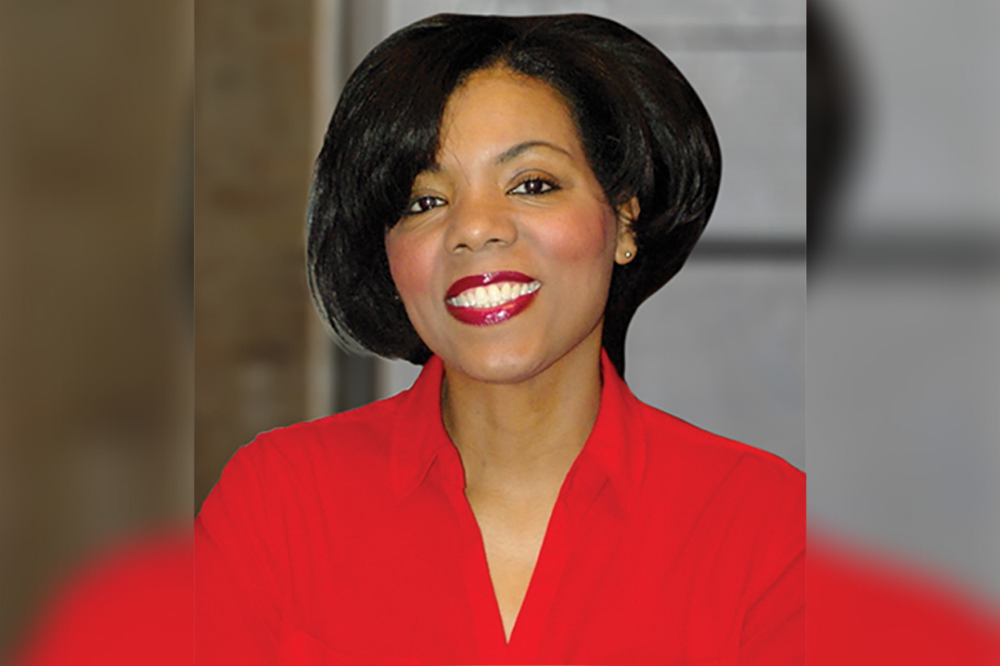Catherine Okoroh’s first taste of the mortgage industry came when she was denied a loan. The first in her family to graduate from college, Okoroh (pictured) was working a solid job as a recruiter, had a good income and a down payment ready but, as she would learn, was struggling with a poor credit score simply because she paid her bills on an infrequent schedule, overpaying on the first bill and expecting that covered the second.
That setback was one of the many Okoroh faced growing up Black with a hardworking single mom and grandmother to take care of her. While the bills were paid on time and Okoroh’s mother had a good credit score, her family didn’t have the sort of family financial discussions that many other families have. She learned from her mom to live within her means and work hard, simple mantras that should lead to the American Dream, but she didn’t get exposure to the more complex aspects of personal finance that can make all the difference when it comes time to apply for a mortgage.
Okoroh, though, is not one to get deterred by a single setback. She spent the next four years learning about credit, understanding why she had bad credit and how she could improve that picture. She started keeping financial records and talking with her loan officer about the outstanding bills holding her back. As it turned out, she could pay them pretty quickly and repair her credit score in the process.
“While I was educating myself in this process…I started getting offers for credit cards. I thought, ‘huh I went from not being able to get a loan to being offered credit. How’s that happening?’” Okoroh said. “I started putting everything together, went back to that loan officer and asked, ‘how do I do what you do?’”
Okoroh, motivated to learn about the mortgage industry by the denial of what should have been the start of her homeownership journey, was seeing how credit and lending fit together and saw how she could turn her newfound knowledge into a meaningful career.
Read more: Bank of America sees increase in mortgage sales made digitally
Okoroh’s story shows the many subtle ways advantages and disadvantages play out in careers and personal lives. Raised by a hardworking mother who kept her bills paid and credit score high, Okoroh’s challenge came because her family simply didn’t know to have the financial conversations so many others have. That education doesn’t happen in schools and it’s left up to families to provide it. When families live for generations without exposure to that education, stymied by the challenges of circumstance or systemic racism, the knock-on effects can be as subtle as a misunderstanding of how bills should get paid. That misunderstanding, though, might mean that someone is denied their home loan. If they weren’t as committed as Catherine Okoroh, they could end up thinking the American Dream is out of their reach.
Okoroh, though, is built tough. Four years after that loan was denied, she was a homeowner and taking her first steps to a career as a loan officer in Chicago. Now, she’s one of the leaders in Guaranteed Rate’s Chicago operations and a passionate crusader for the cause of personal financial education, both in her clients and her wider community.
Okoroh works extensively with clients from the Black community, connecting with people who had similar experiences growing up as her. She tries to pay her hard-won education in personal finance forward, engaging with clients around their own day-to-day finances, instructing them on how to live within their means and why, even if they have a great income and a down payment ready, paying off student loan debt or credit card debt is a crucial step to purchasing a home.
Okoroh has grown her business by more than 100% over the course of the past year and is now pushing for more diversity in the mortgage industry. She knows that the success of more loan officers that look like her will open the door for more minorities to join this industry and improve it in the process.
“I’m a black woman, in an industry that is predominantly white male,” Okoroh said. “There are many times where I have gone into a room or been at conferences, where I was the only person of color in the room… it can look very intimidating.
“I would say to any person of color reading this that they have to be themselves, be authentic, and allow their energy, creativity, and interest to drive them. I would tell them to know their difference makes them stand out, but it doesn’t have to be in a negative way.”

